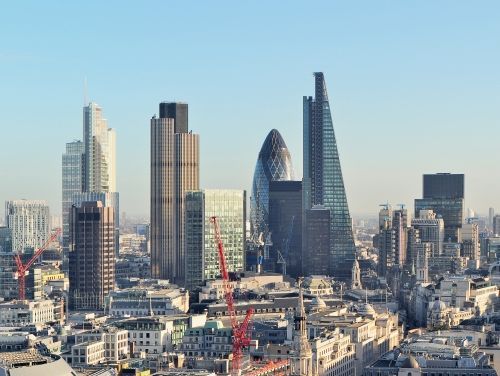15 November 2021
Business Rates Review: Final Report October 2021
Business Rates
In last month's Autumn Budget, Rishi Sunak announced the long-awaited reviews to England's Business Rates system, publishing the Final Report on the same day. SHW's Partner in charge of Business Rates takes us through the key points.

Executive summary
• Key reforms reported to amount to £7 billion in support for businesses over the next 5 years
• Aim to support the high street using a 50% relief for eligible properties with a cap of £110,000 provided for eligible Retail, Hospitality and Leisure properties between April 2022 to March 2023.
• Business rates multiplier has been frozen for all businesses from 2022 to 2023, rather than increasing in line with inflation.
• Relief support for property improvements, therefore incentivising businesses to invest in business premises improvements whilst also offering exemptions for green plant and machinery to support green investment.
• Revaluation cycle moved to three-yearly periods rather than five-yearly periods from 2023, meaning the next revaluation after this will be 2026.
• Technical consultation on these changes this year, for example stakeholders are being consulted on current plans to fund Digitalising Business Rates (DBR).
• £500 million investment in the Valuation Office Agency (VOA) in order to improve the rating system (shorter revaluation periods, digitalisation).
• Bringing forward a consultation on an Online Sales Tax, which could be introduced to help reduce business rates tax and more fairly represent modern commerce.
Summary
Main Changes to the Business Rates system:
Change in the revaluation cycle from 5 years to 3 years.
This will help struggling businesses as it has reduced the previously long period that business had to wait to get a revaluation. This led to a disconnect between the tax and the market as, for example, struggling retail locations were paying rates that reflected a historically strong market. Whilst this will be welcome to some occupiers, others in the office and industrial sector may end up feeling punished for a strong market.
Annual Confirmation
The government has announced that in order to enable the 3-year revaluation system, businesses have to help improve the accuracy of information, whereby businesses will be required to annually confirm that records held by the VOA are correct for their assessment. Not only could this result in businesses being liable for a fine, but also that they will lose the right to challenge the assessment.
Duty to Notify
Ratepayers are likely to face a mandatory requirement to notify the VOA or Billing Authorities (BAs) about changes to the occupation of a property or changes in the characteristics of properties. This will place a duty on ratepayers to provide up to date self-assessment.
Transitional Relief
With the revaluation being extended from 2022 to 2023 due to the pandemic, the government had to respond to a one-year gap left from the current transitional relief scheme that was originally implemented to last until the 2022 revaluation.
Conclusion
The government has answered calls for the business rates system to be reviewed, but some will argue that the changes may not go far enough to answer the needs of businesses that have been adversely affected by the pandemic and ongoing Brexit issues.
It's great to hear of the promised investment in the Valuation Office Agency (VOA) in order to improve the rating system, however it is yet to be seen whether this investment will sufficiently fund the changes needed. Similarly, the bringing forward a consultation on an Online Sales Tax is promising and has been widely called for, but the consultation does not mean this is yet happening.
Finally, there is concern that this £7 billion figure that has been stated as the total support for businesses by the government arguably relates to the fact that the changes have only delayed proposed increases that the government had previously announced. Furthermore, the government has still not made progress on implementing the £1.5 billion Covid relief fund.




